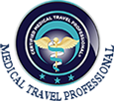What is Clubfoot, and What Are the Current Treatments?
Clubfoot, also known as congenital talipes equinovarus, is a congenital deformity of the foot present at birth. It occurs when the Achilles tendon is too short, causing the foot to turn inward and downward. Key features of clubfoot include:
- The foot points downward and inward, with the sole facing backward.
- It affects approximately 1 in 1,000 babies born in the UK and is more common in boys.
- It can occur in one or both feet.
- While not painful for babies, untreated clubfoot can lead to significant mobility issues later in life.
Current Treatments for Clubfoot
Modern clubfoot treatments emphasize non-surgical methods, with the Ponseti method being the gold standard. Here are the main approaches:Ponseti Method
This widely used method involves:- Serial manipulation and casting: Begins 1-2 weeks after birth to gradually align the foot.
- Weekly cast changes: Conducted over 5-8 weeks.
- Tenotomy: A minor procedure to lengthen the Achilles tendon, often performed under local anesthesia.
- Foot abduction braces: Used to maintain the correction after casting.
French Method
An alternative approach to the Ponseti method, the French method includes:- Daily manipulations by a trained physiotherapist to align the foot.
- Immobilization using adhesive taping.
- Exercises to strengthen the peroneal muscles.
- Use of continuous passive motion machines to improve flexibility.
- Gradual reduction in the frequency of treatments as progress is made.
Bracing
After initial correction:- Full-time use: Foot abduction braces are worn full-time for the first 3 months.
- Night use: Braces are worn overnight until the child is 4-5 years old to prevent recurrence.
Outcomes and Importance of Early Treatment
Non-surgical methods, particularly the Ponseti method, have largely replaced extensive surgical treatments due to their high success rates, which approach 95% when protocols are followed carefully. Early intervention is crucial to achieving the best outcomes, allowing most children with clubfoot to walk, participate in normal activities, and wear regular footwear after treatment.

Get a free price quote
Please fill out the form.
We will prepare a treatment proposal for your condition.
We will prepare a treatment proposal for your condition.








